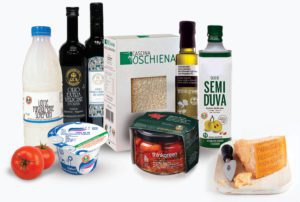Certification of Products from
Sustainable Agriculture
What is Sustainable Agriculture Certification?
The basic principle of sustainable agriculture is the maintenance of a balance between the demands for food production and the preservation of our natural environment. Sustainable agriculture therefore is a type of farming that focuses on producing sustainable agricultural products without compromising the ability of current or future generations to meet their needs.
The use of sustainable agricultural standards and certifications is a way of communicating to customers that the product is sourced from agricultural programmes and food systems that focus on issues related to the sustainable use of our precious resources.
Friend of the Earth encourages sustainability by creating consumer awareness and gives certified companies a reliable and credible way to promote their environmental and social accountability. Once certification has been obtained, Friend of the Earth supports companies through co-marketing and communication activities to improve the visibility of their certified brands.
What is the organic certification process?
The Food and Agriculture Organisation of the United Nations (FAO) define organic farming as a system that relies on ecosystem management, for example practices that maintain and increase long-term soil fertility using biological fertilisers such as animal wastes, rather than on external inputs, such as synthetic fertilisers and pesticides, genetically modified seeds and animals, veterinary drugs etc.
Friend of the Earth guarantees that products that bear the Friend of the Earth logo are sustainably produced and meets the standards of the certification scheme.
Requirements
The requirements that companies must meet to obtain Friend of the Earth certification for sustainable agriculture include:
- A well organised environmental management procedure;
- A system of protection of the ecosystem and implementation of areas dedicated to the conservation of wild flora and fauna;
- The reduction of the use of chemically synthetic substances according to the principles of organic or integrated agriculture;
- The planning and implementation of suitable cultivation rotations and plant fertilization;
- Biological control, the rational use of water resources and the collection of rainwater;
- Minimization of mechanical operations on the ground and its compaction;
- The use of energy from renewable sources;
- Control of gas emissions and greenhouse effect and the implementation of systems to reduce them;
- Social responsibility.
Technical Documents
As a first step you need to download, compile and return to info@friendoftheearth.org the preliminary information Questionnaire (PIF):
- The PIF does not oblige the applying company to commit to proceeding with the audit phase.
- Any checks before the audit are free of charge.
- All information will be kept strictly confidential.




